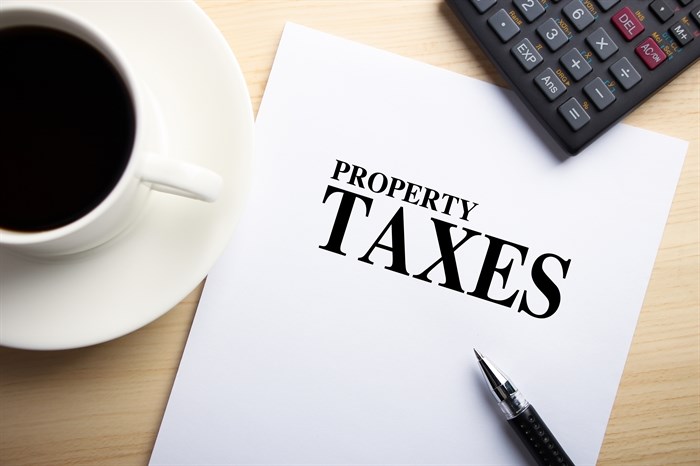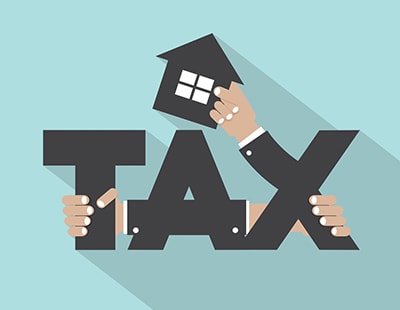A bid by a landlord to get the Government to reinstate tax relief allowing mortgage interest to be set against rental income has been shot down after the petition reached 28,000 signatures.
Simon Foster started the petition on the Government website to reinstate the full amount of mortgage interest against rental income before tax is calculated. “This is a typical response from the government, and it makes me laugh when they say that they want to ensure tax is fair. Because it is landlords who have been screwed over the last few years making it tougher for all of us. It surprises me because there are probably loads of MPs with homes to rent and AirBnBs. A lot of landlords will be impacted by not offsetting their interest – if other businesses can, why can’t landlords?"
“We need to keep on going and hopefully reach 100,000 signatures.”
HM Treasury has responded
However, HM Treasury has posted this response on the site:
The Government will continue to set mortgage interest relief against rental income at the basic rate of tax. The Government has a responsibility to make sure the income tax system is fair. The Government recognises that the private rented sector plays an important role in the UK housing market and economy. However, the Government also has a responsibility to make sure that the income tax system is fair. Under the old system, residential landlords got relief on their finance costs (including mortgage interest payments) at their marginal rate of income tax, which meant that higher rate taxpayers got a more generous tax relief than those on lower incomes.
To address this, and make sure that all residential landlords are treated the same by the income tax system, the Government phased in a set of reforms to restrict finance cost relief to the equivalent of the basic rate of income tax. The reforms mean that all residential landlords will now receive the same amount of relief. It also reduces the disparity in income tax treatment between homeowners and landlords. To minimise the impact on landlords who are affected, the Government chose to act in a proportionate and gradual way. It announced this change almost two years before its implementation. The restriction, introduced in April 2017, was phased in over four years to give landlords time to adjust to the changes.
To be clear, these reforms do not mean that tax relief on mortgage interest has been abolished. Landlords are still able to claim an income tax reduction equivalent to basic rate tax relief on the finance costs of their rental property. Residential landlords also continue to be able to claim relief at their marginal rate of income tax on the day-to-day costs incurred in letting out a property, such as letting agent fees and replacing furniture. The Government understands that people, including those who rent property, are worried about the cost-of-living challenges ahead. That’s why decisive action has been taken to support households across the UK, whilst remaining fiscally responsible.
Appears to be the end of the petition
While that appears to be the end of the petition, it is still live on the Government website until May and if it reaches 100,000 signatures there is a chance that it will be debated in Parliament. Mark Alexander, the founder of Property118, said: “It’s no surprise the government has responded in this way – and it’s a shame that private landlords still have their tax calculated initially against gross rental income without interest payment deductions – unlike any other business in the UK. I would urge all landlords who haven’t already done so to consider their tax situation as a matter of urgency.”

Capital gains tax change is major worry for landlords
A survey of some 2,000 landlords shows that more than four in 10 want recent changes to Capital Gains Tax allowances reversed. The survey, commissioned by Octane Capital, found that confidence in the sector remains robust, despite the government’s best efforts to reduce the financial returns available to buy to let investors. In fact, just eight per cent of those surveyed stated that they had reduced the size of their BTL portfolio over the last year. However, the sentiment survey shows that legislative changes remain the biggest concern for the year ahead, followed by the increasing running costs of BTL such as maintenance and energy bills.
The day to day management also ranked as one of the biggest challenges facing the nation’s landlords, as did the increased cost of borrowing as a result of increasing mortgage rates. The majority of those surveyed 60% are also concerned about still more rises in interest rates.
As a result, just 16 per cent of those surveyed stated that they intend to increase the size of their BTL portfolio over the coming year. When asked which government legislative change they would most like to see reversed, the recent changes to CGT allowance ranked top. The government plans to reduce the CGT tax-free allowance from £12,300 to £6,000 in April of this year, implementing a further reduction to just £3,000 by 2024. The ban on Section 21 evictions and required improvements to EPC ratings also ranked as some of the changes landlords would most like to see reversed.
Octane chief executive Jonathan Samuels says: “It appears as though the exodus of landlords from the rental sector has been somewhat over exaggerated with just a small proportion opting to reduce the size of their portfolio in 2022. That said, while we’ve seen a degree of stability return following a shambolic mini budget last September, many buy to let investors remain cautious about the year ahead. This caution is likely to prevent them from investing further until a greater degree of certainty returns, although we must also tip our hats to the government in this respect, as their consistent attack on the sector remains the number one concern.”

ALEX BRUMMER: The housing market is on the mend... but reforming stamp duty would really rekindle the dream of a property-owning democracy
The narrative surrounding UK housing has been negative since the mini-Budget in September 2022. A sudden rise in the cost of fixed rate mortgages to above 6%reversed a trend to ever surging residential prices. Upholding their reputation as keepers of the dismal science, economists polled by Reuters predicted a 5% drop in house prices in 2023.
Analysts at Nomura went further, projecting a 15% decline by mid-2024. Housebuilders added to the gloom with Persimmon and Barratt cautioning that there was a notable slowdown in the fourth quarter as consumers battled higher mortgage costs. All of this fed through to lower sales rates, rising cancellations, and a hefty drop in forward orders.
It is hard to keep Britain’s residential market down. A chronic lack of supply, bottlenecks, especially at the higher end, and a conviction that bricks and mortar are a more reliable asset class than other choices such as stocks, shares and crypto, mean that positive attitudes towards a home-owning democracy are hard to hose down. The dire housing outlook was reinforced by the Bank of England’s forecast of a recession stretching over two years and the squeeze on real incomes. The surprise lift in output in November, together with a healthy holiday season for retailers, reinforced by Marks & Spencer’s near-£500million store investment plans, has cleared some economic clouds.
The most recent Halifax house price index is worth a second look. It shows annual price growth slowing to 2%, the lowest since the summer of 2021. The 1.5% drop in December house prices was substantial. Yet prices were still rising year on year in spite of all the negativism. The EY Item Club of economists observes that a relatively modest rise in employment should avert a ‘significant fall’. It does more worryingly suggest average prices could fall by 10% over the next 18 months. Nationwide notes that market interest rates have fallen back since the mini-Budget although mortgage rates are taking longer to steady.
Nevertheless, month-by-month fixed rates have dropped below 6p% and those borrowers who avoided hasty refinancing and reverted to standard variable rates should eventually be rewarded for patience. Indeed, after the temporary shock of Trussonomics, agents Rightmove report an increase in asking prices in the December 4 to January 7 period. It seems that it is not just shoppers regaining their confidence. Reports of an impending subsidence in residential values could well be overdone. If the Government really wanted to rekindle the dream of a property-owning democracy, it should pay attention to Institute for Fiscal Studies boss Paul Johnson writing in The Times.
He argues the way to boost access to the housing market is to abolish the distorting effects of stamp duty on housing, encouraging more transactions. There is something for Chancellor Jeremy Hunt to ponder as he limbers up for his March Budget.

